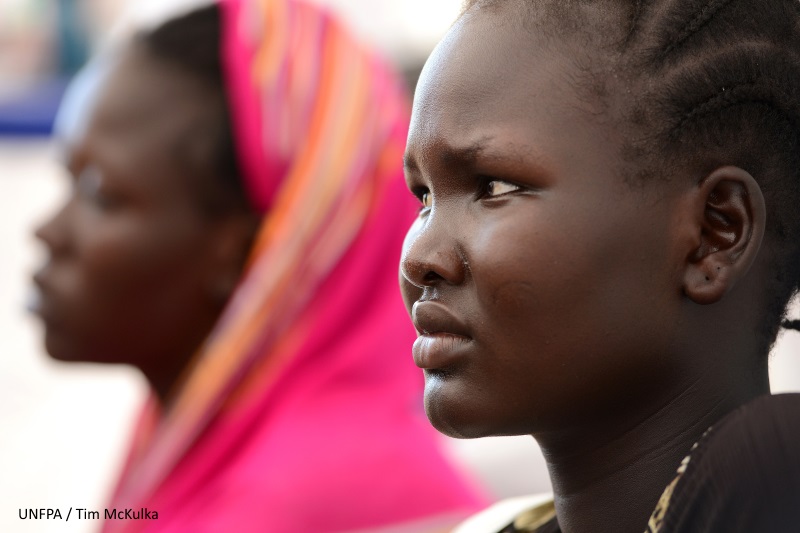Cotonou, 31 July 2014 – At the Ministerial Conference on New Partnerships for the Development of Productive Capacities in LDCs held in Cotonou, UNFPA highlighted the linkage between development of human capital and the realization of demographic dividend in LDCs.
International organizations, United Nations, LDCs (Least Developed Countries), development partners and the Government of Benin gathered in Cotonou from 28-31 July, to discuss on new partnerships for economic growth in Africa via mainly technological acquisition, physical infrastructure, agriculture, energy, industries and services, etc.
Since productive capacities depend on investing in human capital through education and health services, the UNFPA’s participation was meant to underline the linkages between population dynamics and economic growth, and put the youth at the heart of the development of human capital.
Among the 48 LDCs are 34 African countries, almost half of them -15- being in West and Central Africa. Additionally, half of the population in Sub Saharan Africa is under 25 years old which offers a range of opportunities for this region in the coming years.
On behalf of Dr. Babatunde Osotimehin, UNFPA Executive Director, the UNFPA Regional Director for West and Central Africa Mr. Benoit Kalasa, delivered the keynote address of one of the Conference Session dedicated to the Contribution of Skills Development, Innovation and Technological Acquisition to the Promotion of Green and Blue Economy.
“The development of productive capacities – defined by a strengthening of productive resources, entrepreneurial skills, and the linkages between different economic sectors and companies- remains a central development objective”, Mr. Kalasa stated.
“We should continue to initiate such forums”
The side event organized by UNFPA at the margin of the Ministerial conference was successful and well attended by half of Beninese government under the leadership of the Minister of Development, Economic Analysis and Prospective. Besides, other Beninese ministers took part to the side event, including Minister in charge of Public Policy Evaluation and Denationalization Programs, the Minister of Foreign Affairs, the Minister of MDGs, the Minister of Microfinance and Youth Employment and the Minister of Family Affairs. The Equatorial Guinea Minister of Family Affairs attended as well.
Beninese private sector, delegates to the Ministerial Conference, the youth and the media also took part to the panel.
Panelists were Mr. Benoit Kalasa UNFPA Regional Director; Mr. Marcel de Souza, Beninese Minister of Development, Economic Analysis and Prospective; Dr. Azedine Ouerghi, Senior Human Development Economist at World Bank Institute; Mr. Antonin Dossou, Beninese Minister in charge of Public Policy Evaluation and Denationalization Programs; Ms. Zeinabou Maman Noura, medical student from Niger; Ms. Princess Elliot, management student from Sierra Leone; and Ms. Angele Biao, President of YWCA Benin. Ms. Chantal de Souza Yayi, First Lady of Benin was represented by Mr Randolph Coffi, Director of her private secretary.

For the four Beninese ministers who spoke during part of the panel, in order to reap the demographic dividend,and therefore reduce the dependency ratio, education must be the core of the policies. The youth need more academic counseling and careers guidance for them not to remain aloof of the development, since Mr. Dossou maintains that "94 per cent of the young people choose subjects that do not help them to find jobs after they complete their studies."
Mr. Kalasa stressed that discussions must be initiated and praised in order to create frameworks where ministers, the private sector and young people can discuss. “We will continue to initiate such forums for discussions and partnerships like the Sahel Project on Demographic Dividend,” he said.
“We must also keep in mind the five circles that we need to reap the Demographic Dividend: population, health, education, good governance and economy –this includes access to credit and empowerment”, he added.


